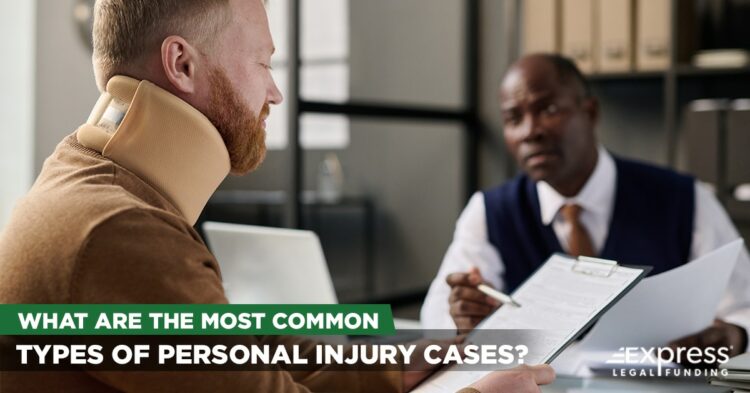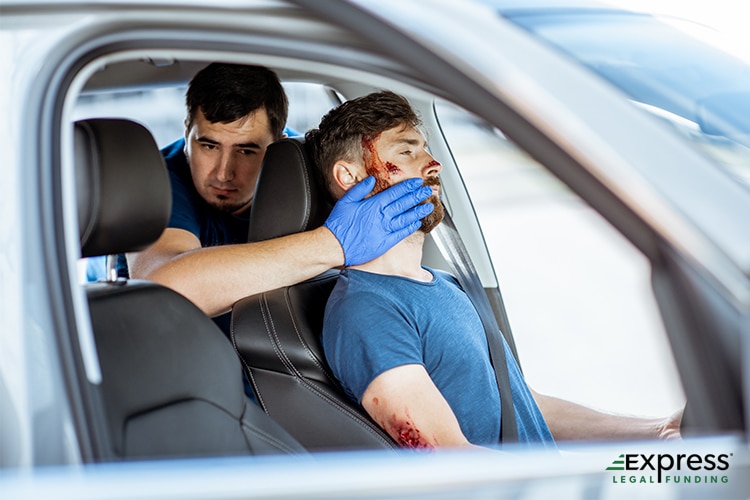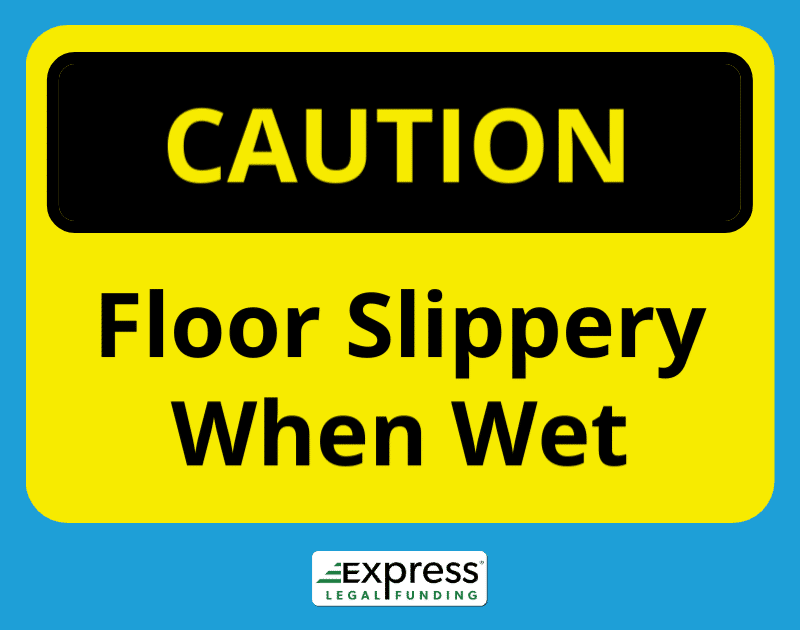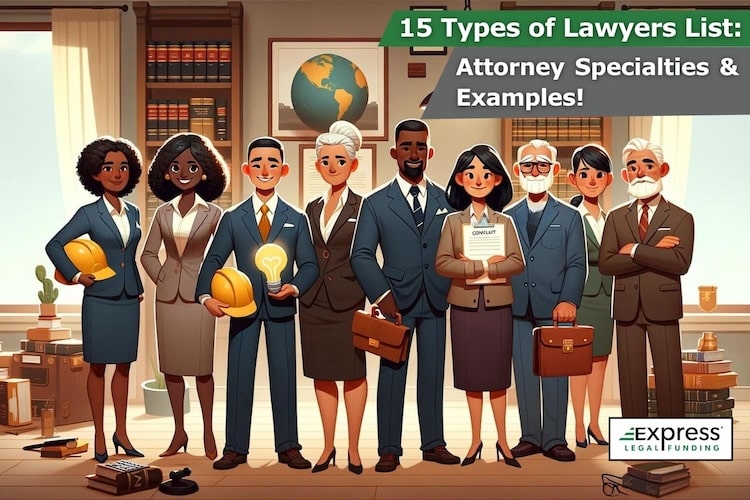Written by Aaron R. Winston
Last Updated: March 16, 2023 9:46pm CDT

Civil law is one of the essential parts of the American judicial system since it enables the average person to seek justice. We are permitted to file lawsuits against parties that have harmed us or violated our rights in some way. It’s the regular person’s way to legally hold them accountable for their wrongdoing.
Most television shows and news programs portray the judicial system as a government-regulated concept where the average citizen has little say. While this makes for decent drama that keeps us watching, it is not faithful to reality.
Civil lawsuits are usually filed by one citizen and can be filed against other people, companies, or a branch of the government. It is also possible to file a civil claim against a convicted murderer, though such claims do not affect their prison sentence.
While civil lawsuits are expected and common, certain subtypes of civil cases are more common than others, with one case type taking a prominent lead. Personal injury claims are one of modern American society’s most common civil proceedings.
They are, for the purpose their name implies: Personal injury law enables injured parties to legally hold the party responsible for the physical injuries they suffered due to another’s negligent tort or wrongdoing.
With car accidents being commonplace, personal injury cases constitute the majority of current civil claims aside from divorce and can account for several major incidents we can encounter.
Similarly, not all personal injury claims and lawsuit incidents are as common or as easy to prove and ultimately win. Knowing which types of personal injury lawsuits are the most common and can be easier to prove is essential for avoiding problems inside and outside the courtroom.
So let’s dig into the list with our four most common types of personal injury cases that many law firms deal with on a daily basis.
1. Personal Injury Claims for Motor Vehicle Accidents
One of the most common types of personal injury claims is filed by the injured victims of motor vehicle accidents. Cars, trucks, and motorcycles are widespread to the point where the vast majority of households in the country owns at least one motor vehicle.
The cities we live in have grown far larger, not only in population but the area of land we require motor vehicles to drive us to our destinations.
However, that does not mean that since most people have a car, cars are safe. An extreme and not completely fair example of this is how most people used to smoke, which we know did not mean it was not without serious risk.
This leaves us with the reality that cars are essential, but they can also equate to 4,000 lb. bullets we ride around to reach a destination. Convenient but extremely dangerous when operated carelessly or without regard for our environment.
Car Accidents are Typically Caused by Negligent Driving
Being hit by a motor vehicle can lead to severe injury or, in rare cases, to loss of life. Car accident claims most often involve two or more cars and are almost always the result of one driver’s negligence despite the other driver following the rules of the road and operating their vehicle safely.
As childish as these statements might sound, they are the main reason why personal injury laws for auto accidents exist:
It is not fair for the car accident victim to be financially liable for the at-fault driver’s error. It is not their fault they got injured in the car wreck. They were following the rules.

So at the end of the day, like with all personal injury claims, a motor vehicle accident injury claim aims to seek a settlement to cover the medical expenses and other costs incurred as a result of a car accident.
Because of these high costs, combined with how straightforward of a path it can be for experienced personal injury attorneys and law firms to prove the other party is liable to pay, auto accident collisions are among the most common types of personal injury claims.
With motor vehicle accidents being number one on our list of the most common personal injury lawsuit types, let’s move to number two: slip and fall accidents.
2. Personal Injury Claims for Slip and Fall Accidents
The second most common type of personal injury claim on the list is the slip and fall variety. These cases are the bane of public locations and commercial premises worldwide.
Although people may have developed somewhat of a comedic view of slip and fall accidents over the years due to its name and the rare fraudulent slip and fall scandals that make the news, the name and claims are appropriate.
Slip and fall accidents refer to incidents where someone is injured by being in an environment that is more hazardous than it should be.
When the maintenance of a publicly accessible area is not up to standard, it creates hazards that endanger the people in the area.
Injuries caused by these hazards render the property owner liable to pay for the injuries and damages since they had a duty to maintain the premises.
This issue is less prevalent now than it used to be, thanks to enhanced maintenance standards and safety codes that apply to businesses and public areas.

What is the Most Common Cause of Slip and Fall Accidents in Stores?
The most common cause of a slip and fall accident in a store is slippery floors, which can happen after a store has recently mopped the floor or not cleaned up a spilled drink. Cleaning the floors is essential for maintenance and cleanliness.
However, wet floors, regardless of their being clean, still pose an extra slipping hazard to customers unaware of the mop water, as it is a surfactant.
What is a Surfactant in Floor Cleaners?
Mop water typically contains a chemical compound, cleaning fluid, in addition to water. This type of chemical compound is known as a surfactant and has a lower viscosity and surface tension than water making them better at spreading out evenly on floors and cleaning up dirt. The higher surface tension of water causes it to bead up into small puddles and bubbles.
However, a downside of the mop water spreading out more evenly is it becomes harder to see, and it becomes more likely people will slip and fall by walking on the recently mopped floors.
Wet Surfaces Cause Slip and Fall Accidents
Walking over a slippery patch of linoleum or tile can cause a person to slip and fall (hence the name of the case). These fall injuries can include broken bones, joint injuries, and concussions, among numerous bodily injury types. The harm can be more severe depending on the direction they fall and if the customer hits any objects while on the way down.
Premises Liability Laws Apply to Stores and Property Owners
In some states, stores are required to place a warning in plain sight informing customers of wet floors (OSHA has its own requirements.).
These wet floor signs are designed to deter customers from walking on hazardous floor sections where they might slip. Without a sign or warning, it is easy for customers to not see the water on the floor and walk into a hazardous part of the area.

Wet Floor Signs Help Protect Property Owners in Premises Liability Claims
When slip hazards are present, and there are no adequate warnings, the property owner or store is not fulfilling their obligations to protect the public.
Therefore, those injured by these hazards would likely have a stronger premises liability claim against the property owner or the party responsible for maintaining the store.
The converse is true. A store or restaurant posting a wet floor sign next to a spill or recently mopped floor demonstrates an effort to warn customers and uphold its duty of care.
With slip and fall accidents being number two on our list of the most common types of personal injury cases, let’s move to number three: medical malpractice claims.
3. Personal Injury Claims for Medical Malpractice
Another common type of personal injury claim is medical malpractice, which is also one of the more disconcerting claims to think about. Medical malpractice is a serious civil action brought following the dire ramifications for the victims of malpractice and doctor negligence.
Medical malpractice claims are traditionally viewed as significant issues for medical professionals who fail to perform their duty to maintain the standard of care, thus causing harm to their patients.
Doctors Have the Standard of Care
People expect care and safety when they go to a doctor’s office or a health care professional. The expectation is that you can trust your doctor to provide the standard of care that will not damage your health and leave you worse off.
Unfortunately, not every doctor is perfectly effective at their job, and some perform their duties so poorly that they compromise their patient’s health and safety, leaving them in dangerous conditions.
The last thing you want is to get a treatment or a misdiagnosis that makes your health worse instead of better.
What are Some Common Causes of Medical Malpractice Cases?
Some common causes of medical malpractice claims include:
- Misdiagnosis: When a doctor misdiagnoses a patient’s medical condition, it can cause the patient not to receive the medical treatment they need, which is medical malpractice.
- Not treating diagnosis: If a doctor knows a patient’s diagnosis but fails to provide the proper treatment, that is medical malpractice.
- Surgical errors: If a patient undergoing surgery suffers an injury during the surgery due to a surgeon’s negligence, that is medical malpractice.
Medical malpractice is one of the more complex personal injury case types to prove. It typically involves serious health issues and conditions that could have been avoided if the physician had been more careful and maintained the expected standard of care.
Complications from medical malpractice can lead to long-term medical problems affecting the patient long after the botched treatment. For example, birth injuries may result in damage that requires surgery to correct, and surgical errors may require further surgeries to correct these medical errors.
In rare cases, the complications from medical malpractice can be permanent and afflict the patient for the remainder of their life.

Although medical malpractice cases work slightly differently than average personal injury claims for motor vehicle accidents or slip and falls, they are from the same family of legal proceedings.
Victims of medical malpractice can sue the negligent doctor that harmed them to pay for the expenses of corrective treatment and other damages. These high costs are why the civil justice system makes medical malpractice personal injury claims viable.
Wrongful Death for Fatal Medical Malpractice
Due to the life-and-death nature of medical malpractice, these negligent torts can also include wrongful death claims if the victim of the malpractice dies.
With medical malpractice being number three on our list of the most common types of personal injury cases, let’s move to number four: dog bite injury claims.
4. Personal Injury Claims for Dog Bites
It is difficult for dog lovers to conceive why anyone would have an issue with dogs, as they are man’s best friend, after all. Unfortunately, there is a darker side for some dog breeds, as one of the most common personal injuries people can face is dog bites.
Dog bite injuries can be excruciating, depending on the breed and the dog’s anger during the attack. While no breed is overly likely to harm, some dog breeds are much more commonly involved in dog bite attack incidents.
Dog Bite Attacks Have Afterwards Danger and Risks
Dog bite attacks pose dangers beyond the bite, causing pain, bleeding, and possibly damaging the functionality of one’s body (for example, the ability to move one’s hand).
However, dog bites also present a health risk to the injured party depending on whether the animal is up to date on its vaccinations, specifically the rabies vaccine.
When you are bitten by an unfamiliar dog whose vaccination records are unavailable, you must go to an emergency room to get a rabies shot. If you fail to get the vaccine within 24 hours of infection, the disease will set in, and you could lose your life over the attack. Dog owners are required to vaccinate their dogs against rabies and every other significant canine ailment.
Unfortunately, the risk is higher with stray dogs or dogs adopted by vagrants since they are less likely to have been vaccinated. When attacked by a dog owned by a neighbor or by a pedestrian and the dog does not have rabies, the physical and emotional trauma is still inescapable.
Fortunately, most states enforce liability laws that make the dog’s owner responsible for their pet’s actions, including biting and attacking other people. Most states will have a dog euthanized after it severely attacks someone to ensure it does not develop a habit of attacking other citizens.

Dog Bite Laws Allow for Civil Lawsuits
These dog bite laws mean victims of dog attacks are entitled to seek legal action against the owner of the dog that attacked them. These cases operate similarly to motor vehicle injury claims in that you can sue for a settlement from the dog’s owner to recover the cost of your medical expenses and even pay for emotional damages.
The one thing you cannot demand as part of your settlement in a dog bite case is for the dog that bit you to be euthanized by animal control.
It falls to law enforcement and judicial officials to determine whether the dog is a significant enough threat to warrant euthanasia.
Most states offer specific provisions to prevent a dog from being euthanized for its first offense, which is reasonable since not every dog will bite because it wants to hurt people.
Nevertheless, dog bite claims are relatively common but rank 4th because they are rare compared to the other top most common personal injury case type examples in this article.
There are other personal injury and accident claims in the civil court system, but these are four of the most common types of personal injury cases brought today.
Closing Statements on the Most Common Types of Personal Injury Cases
Personal injury claims can be filed for any situation where someone was harmed because of another person’s negligence.
The reality is people get hurt every day due to others falling short of the required duty of care, which leads personal injury claims to be easily one of the most common civil proceedings in the country, if not the world.
With the cost of living and medical increasing, the need for these claims becomes all the more critical, as it gives the injured victims a way to recover their losses by taking legal action.
The four types of claims we discussed in this article only constitute part of the full range of injury claims that exist worldwide. While they may be the most common examples, many personal injury cases and other torts happen daily.
They range from product liability claims filed against the manufacturers of defective products to wrongful death lawsuits brought by family members and surviving loved ones.
One challenge that all personal injury victims have during the claim process is they will incur additional expenses due to their being hurt. The cost of medical bills and other unexpected costs. The problem is that personal injury claims can make daily living costs challenging to keep up with.

Our team at Express Legal Funding understands this and can be there to help plaintiffs and people with pending injury claims. That is why we can offer legal funding. It is a financial product and cash advance specific to plaintiffs expecting to recover money from civil claims and lawsuits.
Legal Funding for Personal Injury Lawsuits
The point of legal funding is that we, as a pre-settlement funding company, can advance you cash now while you wait for your case to settle. So you can access the money you need when you need it to pay for essentials like rent and electricity.
The financial and legal parts of lawsuit funding work are that the money is advanced risk-free in exchange for the rights to the portion of the potential proceeds of the claim.
That way, the legal funding company is repaid from the settlement or trial award check at the end of the claim if the claim is successful and there is one.
However, if you get approved funding and go to court but lose the lawsuit and recover no money, you get to keep the pre-settlement funding advanced to you.
That is what makes it a non-recourse pre-settlement cash advance and not a loan, which by definition, is different from how loans work as you would technically be required to be paid back win or lose.
(Please note that the cash funds we can provide to injured and damaged plaintiffs in Missouri are a recourse loan and, therefore, not risk-free advances. Repayment is not contingent upon the proceeds of the claim, and that is why we can provide money to claimants with workers’ compensation claims in Missouri.
Pre-settlement loans in states like Missouri are loans and must, technically by law, be repaid. Express Legal Funding-Missouri, LLC is a lender licensed to offer loans in MO.)
Want to learn more about personal injury and other types of lawsuits? You can read the resources on the Express Legal Funding blog anytime you want.
Remember: If you got injured by another party’s negligence and have not hired a personal injury lawyer, it’s recommended you contact a law office in your area for a free consultation and legal advice.
About the Author
Aaron Winston is the Strategy Director of Express Legal Funding. As "The Legal Funding Expert," Aaron has more than ten years of experience in the consumer finance industry. Most of which was as a consultant to a top financial advisory firm, managing 400+ million USD in client wealth. He is recognized as an expert author and researcher across multiple SEO industries.
Aaron Winston earned his title "The Legal Funding Expert" through authoritative articles and blog posts about legal funding. He specializes in expert content writing for pre-settlement funding and law firm blogs.
Each month, tens of thousands of web visitors read his articles and posts. Aaron's thoroughly researched guides are among the most-read lawsuit funding articles over the past year.
As Strategy Director of Express Legal Funding, Aaron has devoted thousands of hours to advocating for the consumer. His "it factor" is that he is a tireless and inventive thought leader who has made great strides by conveying his legal knowledge and diverse expertise to the public. More clients and lawyers understand the facts about pre-settlement funding because of Aaron's legal and financial service SEO mastery.
Aaron Winston is the author of A Word For The Wise. A Warning For The Stupid. Canons of Conduct, which is a book in poetry format. It consists of 35 unique canons. The book was published in 2023.
He keeps an academic approach to business that improves the consumer's well-being. In early 2022, Aaron gained the Search Engine Optimization and the Google Ads LinkedIn skills assessment badges. He placed in the top 5% of those who took the SEO skills test assessment.
Aaron's company slogans and lawsuit funding company name are registered trademarks of the United States Patent and Trademark Office. He has gained positive notoriety via interviews and case studies, which are a byproduct of his successes. Aaron R. Winston was featured in a smith.ai interview (2021) and a company growth case study (2022).
In 2023, Aaron and Express Legal Funding received accolades in a leading SEO author case study performed by the leading professionals at WordLift. The in-depth data presented in the pre-settlement funding SEO case study demonstrate why Aaron Winston maintains a high-author E-E-A-T. His original writing and helpful content continue to achieve unprecedented success and stand in their own class.
Aaron was born in Lubbock, TX, where he spent the first eight years of his life. Aaron attended Akiba Academy of Dallas, TX.







